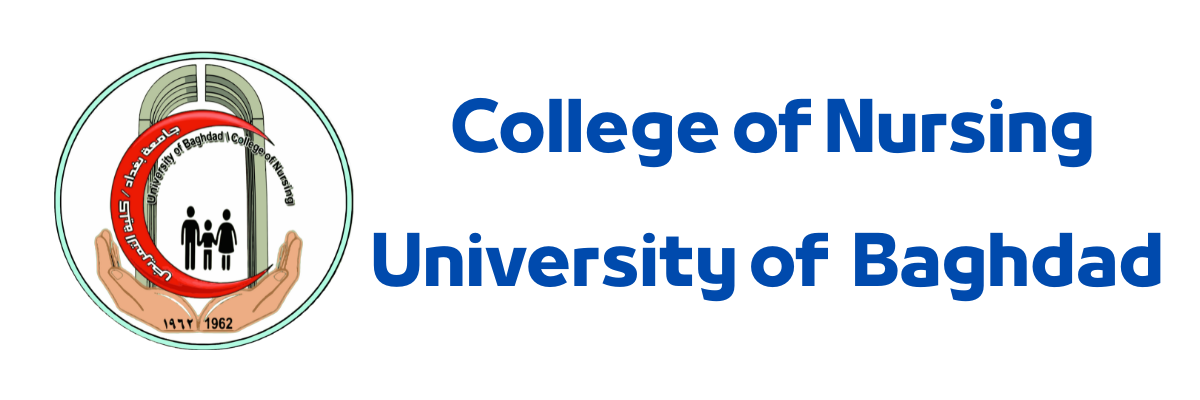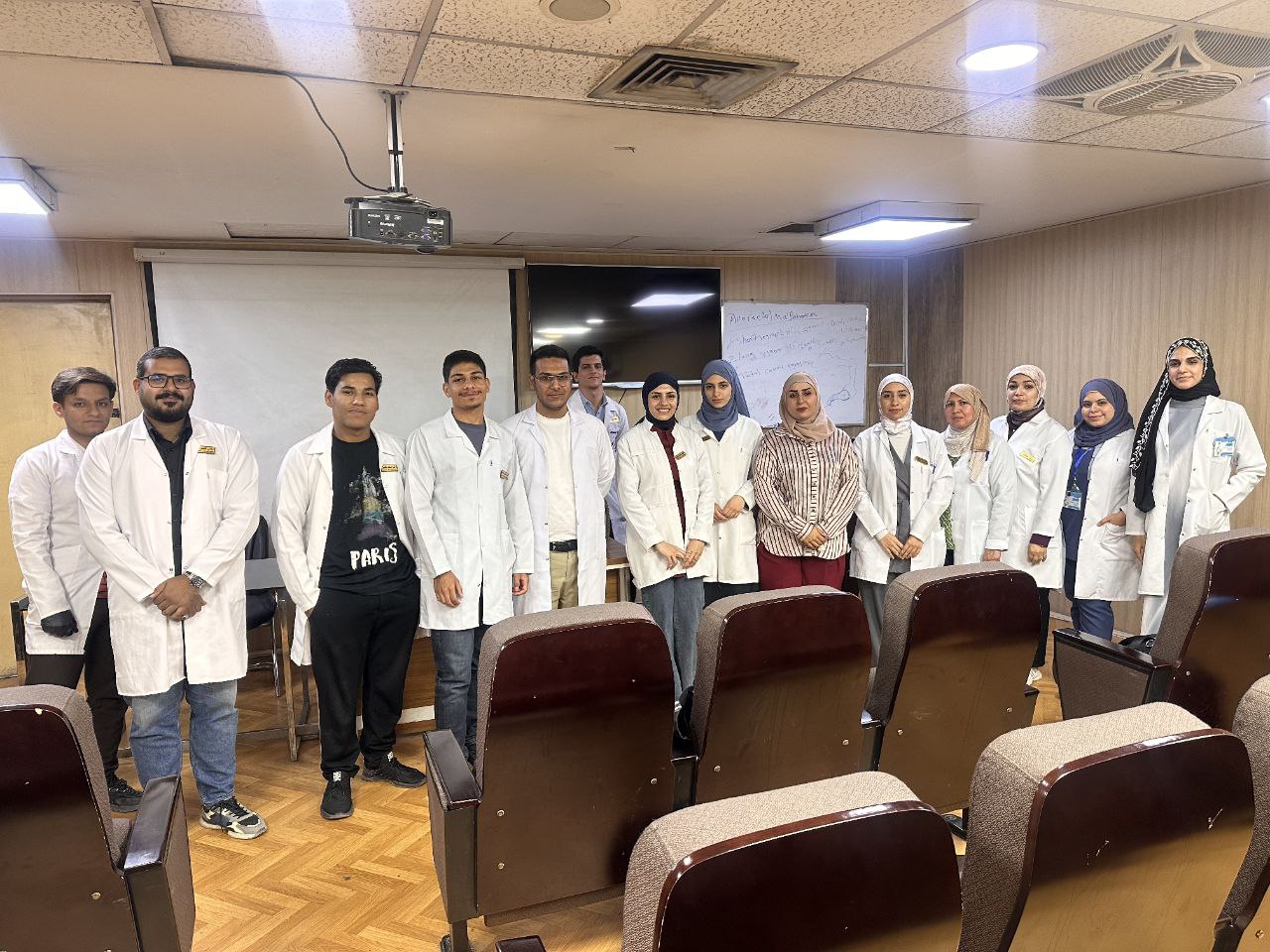The college of Nursing at the University of Baghdad organized a scientific field visit for undergraduate students in the third stage of the pediatric nursing branch (for both morning and evening classes) to Baghdad Teaching Hospital, specifically to the pediatric surgery department. The visit was supervised by a group of faculty members, including Assistant Professor Dr. Zaid Waheed Ajel, Assistant Lecturer Ayat Hussein Hamid, and Assistant Lecturer Ahmed Wissam Shaker.
The main purpose of the visit was to introduce students to the role of the nurse leader in managing critical surgical cases in children. It also aimed to hone their skills in making appropriate nursing and medical decisions to save children’s lives and avoid complications, as well as to acquire knowledge and skills related to pain management and post-operative wound care. The visit also aimed to enable students to recognize medical conditions, make accurate diagnoses, and provide optimal nursing interventions.
The visit included a field tour of the pediatric surgical ward, where students learned about clinical practices used in cases of pain and wounds in children.
This visit is part of a series of activities planned by the Pediatric Nursing Department to enhance students’ knowledge and practical skills. Through these initiatives, the Deanship of the College of Nursing affirms its commitment to graduating students armed with knowledge and correct clinical practices to serve health institutions, increase the quality of healthcare provided to patients, and save their lives.
This educational field visit contributes to the achievement of two main sustainable development goals: Goal 3 (Good Health and Well-being) by preparing specialized nursing cadres capable of improving the quality of surgical healthcare for children and contributing to reducing life-threatening complications. Goal 4 (Quality Education) by providing practical education that links theory to clinical application, ensuring the graduation of highly qualified nurses in accordance with international standards.









